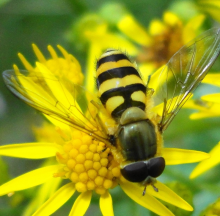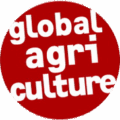
Britain’s biodiversity is in an increasingly fragile state, with species that pollinate crops or fight pests declining rapidly, putting the nation’s food production at risk. This is the result of a new study published on 8 December in the journal Nature Communications. Researchers at the University of Reading and the Centre for Ecology and Hydrology carried out a study which brings together tens of millions of wildlife records spanning 40 years. They found that the composition of species communities is changing rapidly through drivers such as habitat loss and climate change, with potentially serious consequences for the resilience of ecosystem functions. “There have been many efforts to track the changing prospects of wildlife, but this is the biggest and most comprehensive report ever assembled for any country in the world,” said Dr Tom Oliver from the University of Reading who led the research. “The picture that emerges is of an increasingly fragile system, particularly in species that do vital jobs for humans. Unless efforts are made to reverse some of these declines, we face a future where we will be less confident that we can effectively grow our food.” The scientists analysed trends in the frequency of 4,424 species across the country between 1970 and 2009, using data from thousands of trained volunteer recorders across the country. The record covered 22 broad species groups – such as bees, dragonflies, grasshoppers, ladybirds, plants and mosses. The scientists grouped the species into key ecosystem functions they provide – pollination, pest control, cultural value, decomposition and carbon sequestration. While all groups saw declines in native species, the population of animals providing decomposition and carbon sequestration remained relatively stable as declines are offset by new species arriving into the country. However, animals carrying out other vital jobs for farming by providing pollination and pest control suffered an alarming decline which can neither be offset by native species increasing in numbers nor by the arrival of new species to Britain. One example is the banded hoverfly Syrphus ribesii, which is important for pest control since it feeds on aphids and also pollinates crops and wildflowers. Professor James Bullock, who co-led the work, said: “While this analysis sends us a warning, concerted conservation efforts may allow us to halt these declines. Conservation actions, such as wildlife-friendly farming, can avoid the loss of biodiversity and the resulting erosion of the pollination, pest control and other benefits we derive from nature.” (ab)
